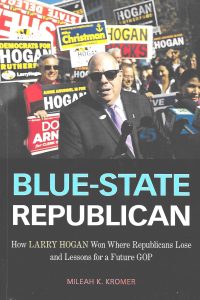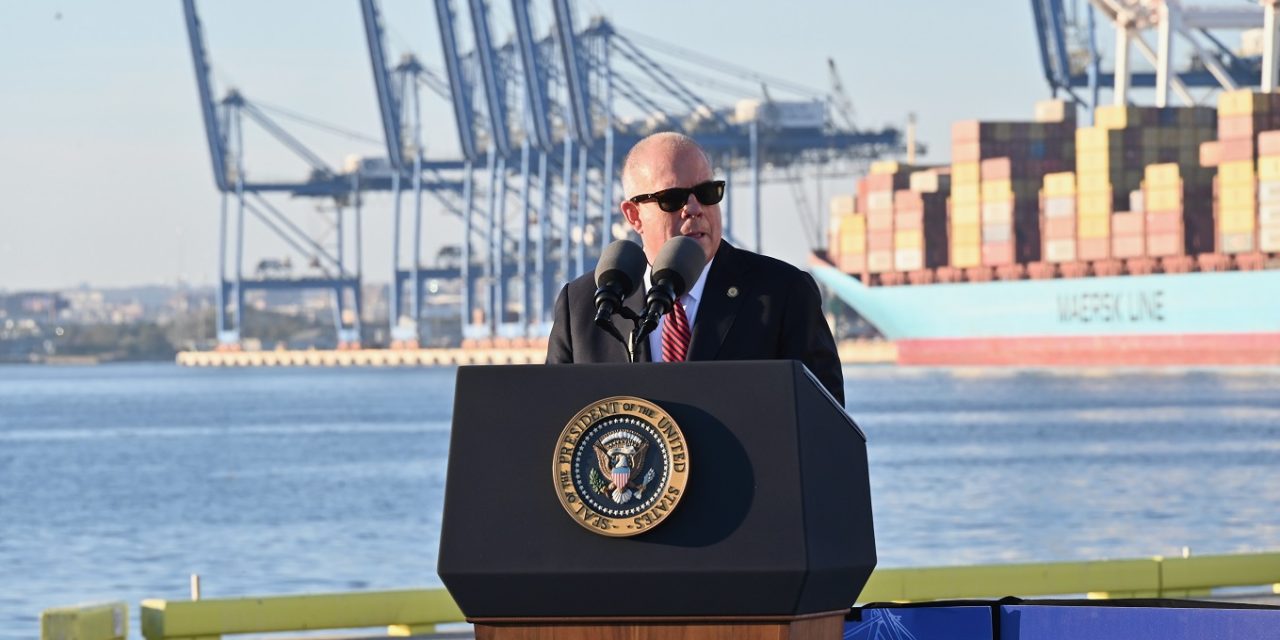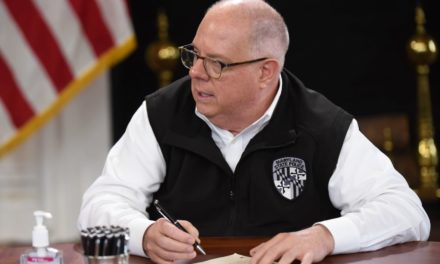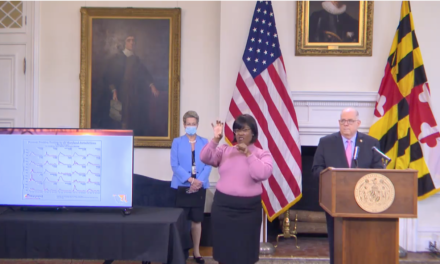 How did relatively conservative Republican Larry Hogan manage to become only the second Republican in Maryland history to win two terms as governor in an increasingly progressive state?
How did relatively conservative Republican Larry Hogan manage to become only the second Republican in Maryland history to win two terms as governor in an increasingly progressive state?
Mileah Kromer, a Goucher College political science professor and pollster, does a great job answering that question in her new book, Blue-State Republican: How Larry Hogan Won Where Republicans Lose and Lessons for a Future GOP.
Kromer came on the Maryland scene 10 years ago as the director of Goucher’s Sarah T. Hughes Center for Politics, where she founded the Goucher College poll. That was just as Hogan was building his Change Maryland advocacy group, which became the foundation for his 2014 campaign for governor.
Kromer’s book takes the reader step by step through the ins and outs of that campaign and Hogan’s long background in politics – despite his self-portrayal as just a small businessman. Not only does Kromer use published sources for her recounting, but she interviewed key players in the media and politics. And on top of that, as a good poli-sci professor she puts the Maryland story in the context of academic research about polling and politics for publisher Temple University Press.
Remembering
As someone who covered both campaigns, particularly Hogan’s rise from 2011 to his stunning upset victory in 2014, I was struck by how often I was saying to myself as I read the book, “Oh, I remember that.”
What’s particularly good is not just her even-handed narrative about the campaigns, but the access she gained to Hogan’s behind the scenes polling and strategizing in both campaigns and the governing that followed. Unlike the bloviating by some academics that reporters contact for observations about political events, Kromer has been playing close attention and knows what she’s talking about.
Kromer clearly admires Hogan’s political skills and his decision to pick and choose his fights with the Democrat-dominated legislature. That’s among the reasons he judiciously used his vetoes – which were almost always overridden – but allowed literally hundreds of bills he was not fond of to become law without his signature.
But this is no puff piece about the governor. “Hogan is still guarded, sometimes prickly, and often terse with the media,” she notes at one point.
Kromer’s views are solidly grounded in the public opinion she surveys and her close attention to media coverage. “Many in Maryland have complained that Hogan has benefited from an uneven media playing field that advantages the governor. In many respects, they’re right. But it’s the same incumbency advantage that all governors, regardless of party, can enjoy if they have a competent communications staff.” And in Kromer’s account, Hogan’s staff are more than competent – they are disciplined, protective and aggressive.
Hogan’s 2014 upset is perhaps his most stunning political achievement, but Kromer documents how he was able to maintain his popularity through his first term. That made winning his second term against a deeply flawed and underfunded Ben Jealous a lot easier. (In my first encounter with Jealous, on a street corner in Baltimore for a teachers union event, he referred to me as a “Republican reporter,” an odd way to meet one of the only two reporters who showed up. He later attacked Maryland Reporter in a radio interview.)
There are many pluses to Kromer’s book. Not just its balance and analysis backed by facts and data. It is also an easy read and short, just 151 pages before the well-documented notes. And I happen to agree with most of its observations and analyses, in addition to learning background that I hadn’t known before. And it explains to the dismay of both Trumpers and progressives how an essentially conservative man has been able to govern as a popular moderate.
Moderation
“The necessity of working with Democrats, given their immense power over that state’s politics and the constraints of the Maryland electorate, further blurs the picture of the policies Hogan might pursue under different political circumstances. Still holding a mix of liberal and conservative policy positions is also consistent with how moderation is characterized – arguably mischaracterized – among the voters in the mass electorate.” Later she writes:
“It’s likely that public perceptions of Hogan’s moderation are grounded not fully in a robust consideration of his policy positions, but in his willingness to challenge the orthodoxy of his partisan and ideological social group, the Republican Party or its leader, Donald Trump.” On top of that, Hogan is personally popular and “the plurality of Maryland voters view themselves as moderates,” and may project that on to a governor they like.
Disappointing but understandable given the need for writing, editing and publishing in an academic press, the book doesn’t cover Hogan’s management of covid and the last two years. Kromer certainly suggests that Hogan’s political path ahead in the current GOP is difficult and challenging.
“Regardless of what the future holds,” writes Kromer in the last paragraph of her book, quoting a June 2021 with the governor, “Hogan has a clear view of how he wants to be remembered in Maryland: ‘I want people to look back on my years as governor and say that I worked hard and tried to solve problems. And that I was a good governor. I’d be happy with that.’ ”
Based on Kromer’s book, that will likely be true. And wherever the next campaign trail may take him, Hogan can say, “If you don’t believe what I can do, read Kromer’s book.”







Recent Comments